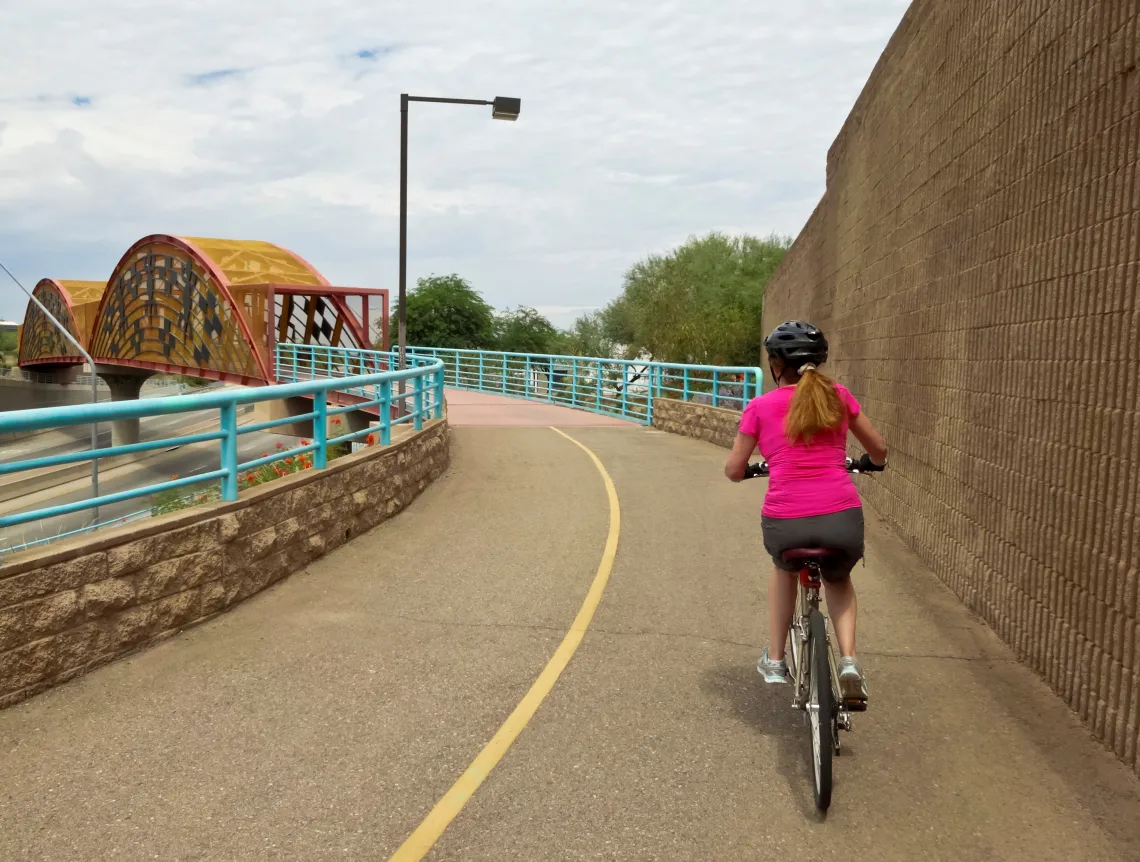Study highlights challenges in bicycle planning in Tucson

A new study on cycle planning in Tucson, Arizona, reveals the complexities planners face in moving projects from initial planning to construction and evaluation.
Co-authored by Joey Iuliano, lecturer in Sustainable Built Environments, and Ladd Keith, associate professor of planning, the article emphasizes the importance of
collaboration among city planners, advocates, politicians, and researchers to create effective cycling plans.
"Shifting Gears: A case study of bicycle planning and decision-making in Tucson, Arizona" was published in "Active Travel Studies."
Excerpt from the article:
"Planners cannot be everywhere and rely on public feedback to identify issues. Empowering residents through education, advocacy groups, and focused outreach to low-income and marginalized communities is critical for learning what keeps them from riding. Increased participation in support of cycling investments could help reduce pushback as well. By strengthening relationships with outreach programs that work as a conduit between residents and the city, Tucson could become a model for others."



